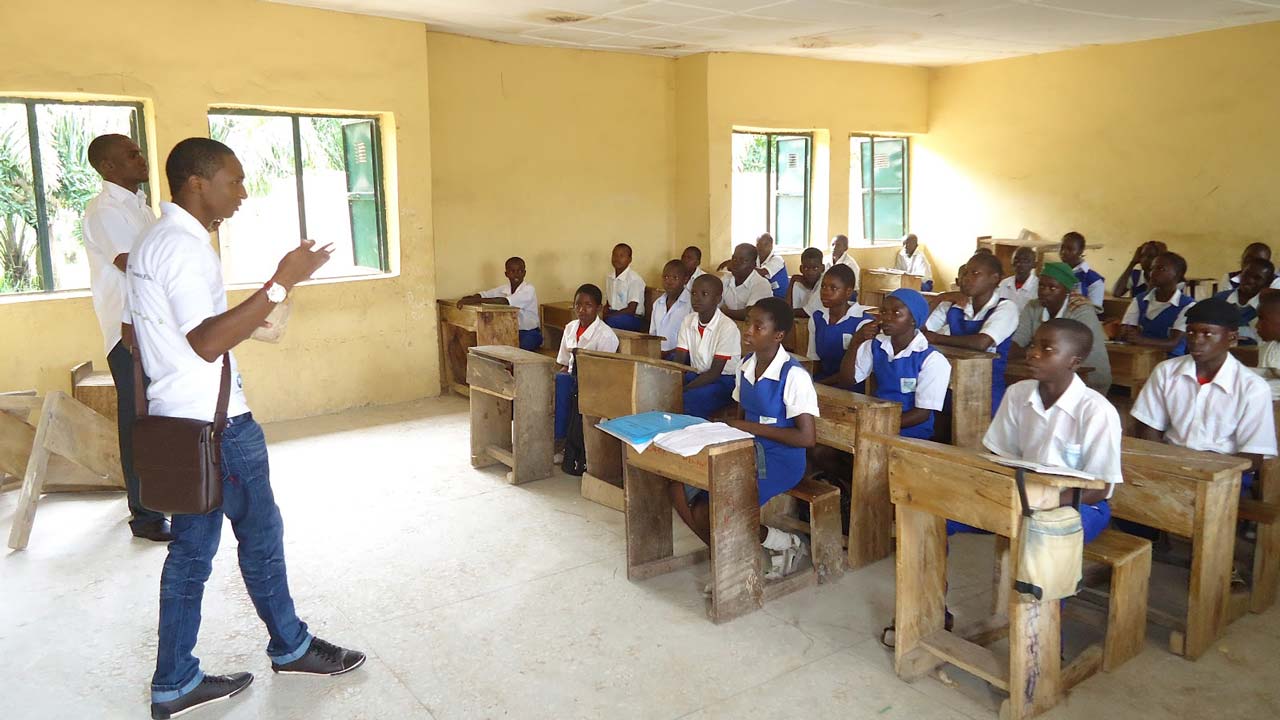
It was only appropriate that the parlous state of Nigeria’s education was in focus the other day at a public presentation of a book where members of an older generation, indeed ‘old boys’ of the good old schools, reminisced on Nigeria’s glorious system before mediocrity set in over the years.
The public presentation of the memoir of 83 year-old Festus Alfred Oladimeji Oseni, an engineer who retired from the federal civil service as a director, was the trigger for jovial but deep reflections during which a suggestion was made that one of the ways to sustain quality in education in Nigeria is for the old students who had the benefit of the system that once worked to put something back and ensure that their children attend their old schools.
In the ensuing debate over the collegiate competitiveness and content quality in times past, old boys of Government College, Ibadan, where Pa Oseni began his own glorious journey, products of other public schools including King’s College were not only noisily proud of their old schools, they lamented that these schools had long degenerated into despicable levels. How true!
By 2014, secondary school education in Nigeria had collapsed to the extent that out of the 1,692,435 candidates who sat for the West African School Certificate examination, only 529,425, representing 31.28 per cent could obtain credits in five subjects and above, including English and Mathematics. This situation, this newspaper had observed was “disturbing.” Because majority of the candidates, numbering 1,163,010 or 68.72 per cent had failed, it was in unmistakable terms that a disaster deserving the declaration of a state of national emergency was declared by this newspaper.
Although there have been some improvements since 2015, before then, for the six years, there had been a steady decline in the performance of candidates in WAEC examinations. The May/June 2013 showed that 36.57 per cent candidates obtained five credits and above, including English Language and Mathematics. In 2012, the percentage was barely 38.81. In 2010, only 317,142 candidates or 23.71 per cent obtained five credits with English and Mathematics. In 2009, the performance was 26 per cent of the 1,373,009 candidates. The worst result was recorded in 2008, when out of a total of 1,369,122 candidates who sat for the examination, only a meagre 188,442 or 13.76 per cent obtained five credits and above. The overall average for five years is just 31.27 per cent. That 2014 result, 31.28 per cent fell within the same range.
The consistent low performance rate in public examinations and poor rating of Nigerian universities on all fronts including a recent one on employability skills of graduates of universities in global context is an indictment of the totality of education planning and administration in the country. There is no doubt therefore that something needs to be done urgently to redress the embarrassing situation. It has now assumed a national security dimension. What else can threaten a nation’s security and future more than ignorance nurtured by a little learning and poor quality in education?
Given the ugly state of affairs, a state of emergency ought to be declared on education by the government to arrest the disaster. It is commendable that Kaduna and Sokoto states, for instance, have since declared state of emergency on education. What is needed is concrete action, a redemptive national action, to save the country and secure its future.
With the terrible decline in the nation’s education, upon which foundation would democracy and a prosperous nation be built? Poor attention to teachers’ welfare and teacher education as well as the absence of adequate teaching infrastructure has contributed to the rot in education. This is exacerbated by corruption and loss of values in the country. The reading culture is abysmal and scholarship and excellence are not rewarded anymore. So bad have things become that parents are known to buy examination question papers and raw scores for their wards. The future of the country is being ruined. Nigeria now risks a situation where there would be no skilled manpower for the various sectors of the economy, sooner than later. There is an apparent dereliction of duty and responsibility on the part of both parents and teachers. Across the nation, unqualified teachers hold sway. Thousands of Youth Corps members, who are barely educated in the real sense, are deployed to teach in schools. The result is a complete reign of mediocrity, prefacing disaster. What is more, many state governments don’t hire trained and qualified teachers. The ones they have are hardly paid. Worse still, petty ethnicity has engendered a situation in which qualified teachers who are not “indigenes” are not hired outside their state of origin. These are desperate times and there is need for desperate measures to be applied to rescue education.
The starting point should be for Nigeria’s leaders at all level to be persuaded that appropriate funding for education should be made a national priority. In this connection, teacher training should be stepped up as a matter of urgent national importance. In this regard, it has become necessary for graduates of other disciplines, to be prodded into teaching after going through a crash programme. Teachers, of course, should be well paid and motivated to attract the best hands. The school curriculum should be straightened.
At present, the state of teaching is pathetic and that explains why nobody wants to be a teacher. In-service training should be re-introduced for teachers. Teachers are the fulcrum of education before other things can work. Without competent and committed teachers, every other thing will fail. The rot in education has its roots in policy inconsistency. The era of inspectors should be re-introduced. With the right calibre of teachers and infrastructure in place, the situation will change for the better. The time to take action is now! And the first need of Nigeria is the education of leaders on the nexus between quality in education and development.






